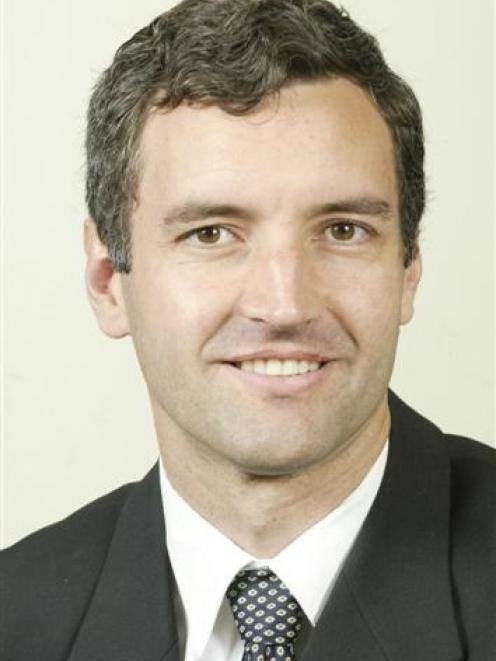
"Despite sustained strong growth in revenue, local councils have run themselves into sizeable deficits as expenditure has ballooned that much faster.
"The good news is that the implied belt-tightening at the sub-national level is unlikely to be as big a deal for the economy as it will be abroad."
While local government accounts would attract much scrutiny in New Zealand, they were unlikely to stymie the strong capital expenditure programmes in the pipeline and the funding implied by it, he said from Wellington.
Dunedin City Treasury reported its annual results on Friday.
The notes to the accounts showed short-term borrowing had fallen to $6.6 million this year from $13.7 million last year.
However, long-term borrowing had increased 23% in the June year to $361.9 million from $292.7 million.
Total borrowing increased 20% in the period to $368.5 million.
Dunedin City Holdings reported a profit before tax of $13.9 million in the period from revenue of $214.4 million, a 6.5% return.
Mr Ebert said the latest figures from Statistics New Zealand showed an operating deficit among local authorities of $239 million for the year to June, compared with a surplus of $124 million two years earlier.
The seasonally adjusted deficit for the June quarter of 2009, which annualised to $404 million, gave a sense of even greater erosion.
"In this respect, our local councils are in a similar predicament to that of their central government overlords of needing to tighten their belts if they are to limit the accumulation of debt already assured from solid investment spending programmes."
At least central government had something of an excuse for running deficits in that its revenue from tax had been withering as the nominal economy had flattened off, he said.
Local government revenue, in contrast, had been able to be maintained at a strong pace.
In the year to June, overall income expanded 6.5%, close to the average of the six previous years, Mr Ebert said.
While the regulatory income part of the revenue - fines and fees - had been comparatively steady, most other revenue streams maintained a robust rate of increase.
Interestingly, that included a 10.2% increase in government grants and subsidies, he said, Income from admissions to council-run facilities and services also enlarged noticeably by 12.4% over the year to June 2009.
"As for the bread and butter of revenue streams, local body rates, these increased 5.5% over 2008-09. Robust as this was, it was at least slower than the 8.1% pace of 2007-08 and 9.7% in the June year before that."
Despite perceptions to the contrary, rates collection need not reflect the property price cycle.
If it did, it should have dropped in the year to June 2009, Mr Ebert said.
"In reality, property valuations serve as a proportioning device to extract the total revenue from rates the councils deem necessary. Councillors simply tweak the levy rate, per dollar value of property, to suit that overall purpose."
The councils had exerted an even greater force upon operating expenditure in the past few years, he said.
For the year to June, nominal outlays increased 9.3%, following 10.3% in the previous year.
A good chunk of that was from buying in of outside goods and services, which expanded 7.9%.
However, it was "most interesting" to see that total employee costs rose 9.3% in 2008-09 - a period over which employment in the overall economy dipped and wage inflation slowed sharply.
The employee bill of the country's local authorities, at $1.6 billion, was 51% larger than it was five years ago.
Dunedin City Holdings' employee expenses rose 4.6% in the year to June to $40.5 million.
Mr Ebert said that unless there were some major revisions to the various statistics, he would be left with the impression New Zealand's local councils had, despite the broader recession, expanded themselves into a jam.
"To be sure, they're not alone in their shabby cash flow condition. But if one sector could have been hanging in there much better, given its cast-iron revenue streams and ability to control expenditure, it would surely have been the local and regional councils.
"The fact they are actually in clear deficit is thus lamentable - for them and for a wider economy still in need of as much support as it can get . . ."











